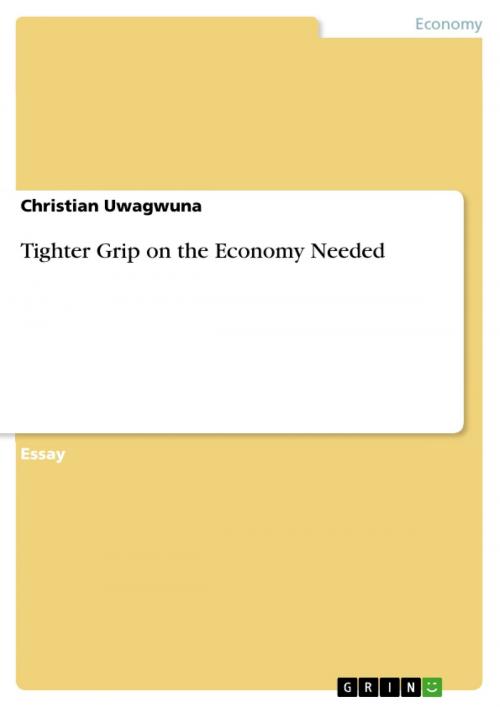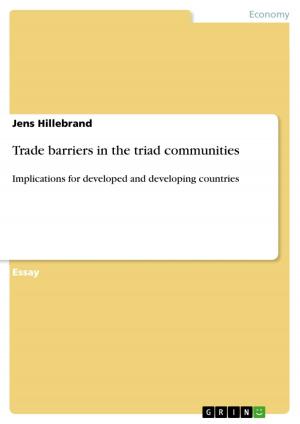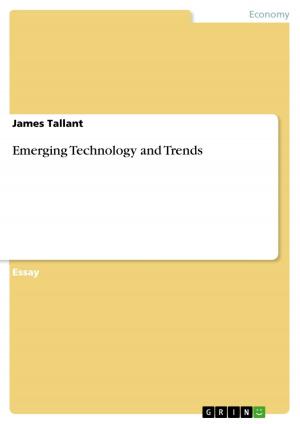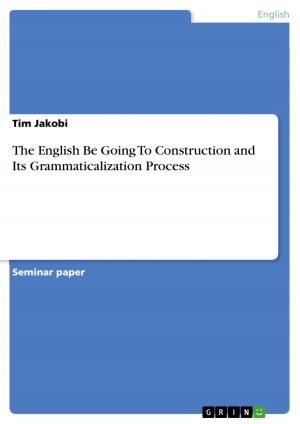| Author: | Christian Uwagwuna | ISBN: | 9783640895694 |
| Publisher: | GRIN Publishing | Publication: | April 18, 2011 |
| Imprint: | GRIN Publishing | Language: | English |
| Author: | Christian Uwagwuna |
| ISBN: | 9783640895694 |
| Publisher: | GRIN Publishing |
| Publication: | April 18, 2011 |
| Imprint: | GRIN Publishing |
| Language: | English |
Essay from the year 2010 in the subject Economics - Macro-economics, general, grade: 67, De Montfort University Leicester, course: Contemporary Business Issue, language: English, abstract: The purpose of this paper is to consider the rationale of economic regulation, why regulation has welfare benefits and why consumers of financial services, particularly retail consumers demand regulation of the economy. A poll carried out by the BBC showed that most people want their government to have more control over the running of their economy. However, some academic liberals (Bentson, 1998) are skeptical of the benefits of such regulation. These critics of economic regulation argues variously as follows; that there is no market failures and imperfections, and that if they do exist they are not sufficiently serious to warrant regulation, and that regulation may not practically solve these failures and imperfections, and that if it does, it can only do so by imposing cost that might exceed the cost of the original problem, and that imposing regulation raises serious moral hazards, and finally, that regulation imposes a wide range of cost which is ultimately borne by consumers.
Essay from the year 2010 in the subject Economics - Macro-economics, general, grade: 67, De Montfort University Leicester, course: Contemporary Business Issue, language: English, abstract: The purpose of this paper is to consider the rationale of economic regulation, why regulation has welfare benefits and why consumers of financial services, particularly retail consumers demand regulation of the economy. A poll carried out by the BBC showed that most people want their government to have more control over the running of their economy. However, some academic liberals (Bentson, 1998) are skeptical of the benefits of such regulation. These critics of economic regulation argues variously as follows; that there is no market failures and imperfections, and that if they do exist they are not sufficiently serious to warrant regulation, and that regulation may not practically solve these failures and imperfections, and that if it does, it can only do so by imposing cost that might exceed the cost of the original problem, and that imposing regulation raises serious moral hazards, and finally, that regulation imposes a wide range of cost which is ultimately borne by consumers.















